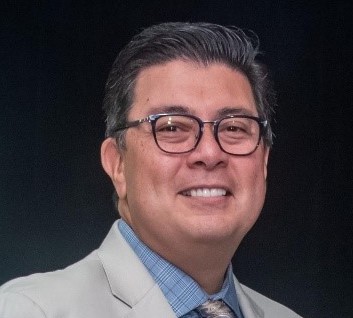Site Search
- resource provided by the Forum Network Knowledgebase.
Search Tip: Search with " " to find exact matches.
The Emergent Fund, Funders for Justice, and Funders for LGBTQ Issues present this webinar which features Mickaela Bradford, Malachi Garza, Ola Osaze, and Monserrat Padilla and moderated by Aldita Amaru Gallardo, Soros Equality Fellow.
...
Grantmakers Concerned with Immigrants and Refugees (GCIR) is presenting a timely program in response to the 2024 Election. In a year in which immigrants have been openly and regularly denigrated for cynical partisan purposes, the 2024 election has...
The Disability & Philanthropy Forum invites you to register for the 2024 Disability & Philanthropy Webinar Series. All of our 2024 webinars will be open to the public. This collective learning journey will focus on why a disability lens is...
CNJG is pleased to offer this program to family foundation members as part of NCFP's Fundamentals of Family Philanthropy 2024 webinar series, providing guidance on the core tenets of effective family philanthropy.
...
The Disability & Philanthropy Forum invites you to register for the 2024 Disability & Philanthropy Webinar Series. All of our 2024 webinars will be open to the public. This collective learning journey will focus on why a disability lens is...
CNJG is pleased to offer this program to family foundation members as part of NCFP's Fundamentals of Family Philanthropy 2024 webinar series, providing guidance on the core tenets of effective family philanthropy.
...
The Disability & Philanthropy Forum invites you to register for the 2024 Disability & Philanthropy Webinar Series. All of our 2024 webinars will be open to the public. This collective learning journey will focus on why a disability lens is...
Why are so many nonprofits having trouble filling jobs? Why are so many employees leaving the sector? Because too many nonprofit jobs are burnout jobs!
Funders and nonprofit managers can prevent burnout and create sustainable jobs that...
CNJG is pleased to offer this program to family foundation members as part of NCFP's Fundamentals of Family Philanthropy 2024 webinar series, providing guidance on the core tenets of effective family philanthropy.
...
Beginning in October 2023, a group of funders got together and commissioned the Nonprofit Finance Fund (NFF) to facilitate a series of dialogues with Newark’s nonprofit community to learn how foundations can be supportive of their capacity...
Any and all staff and/or trustees from new CNJG members and any new staff or trustees of veteran CNJG members are invited to this in-person meeting prior to the Annual Meeting and Holiday Luncheon Pre-Meeting Workshop to meet fellow new members and a...
The Westfield Foundation has awarded more than $120,000 in Q4 2024 grants to eight local organizations, reinforcing its mission to support critical community needs through partnerships and forward-thinking initiatives. These grants, focusing on...
The Healthcare Foundation of New Jersey is pleased to announce that it has awarded $3,515,084 in grants to eleven New Jersey nonprofit organizations in its fourth quarter of giving in 2024. The grants include two major gifts to area hospitals,...
The PSEG Foundation celebrated a decade of community impact through its Neighborhood Partners Program (NPP), hosting a special event to honor more than 400 nonprofit organizations that have received nearly $8 million in grants since the program’s...
Provident Bank recently awarded a total of $50,000 in grants to 11 small businesses and 4 nonprofit organizations as part of the Federal Home Loan Bank of New York (FHLBNY) Small Business Recovery Grant (SBRG) Program.
The SBRG program...
In response to the murders of George Floyd, Breonna Taylor, Tony McDade, Ahmaud Arbery, and countless other Black individuals, we have seen a call to end systemic racism, police brutality, and injustice. To explore philanthropy's role in fighting...
 With support from the Campbell Soup Company, Annie E. Casey Foundation, the Wells Fargo Regional Foundation, and the...
With support from the Campbell Soup Company, Annie E. Casey Foundation, the Wells Fargo Regional Foundation, and the...
The New Jersey Civic Information Consortium has announced its final round of grantmaking for 2024, awarding a total of $878,859 to 11 projects that strengthen the state’s news and information ecosystem. This funding supports nine renewal grants, one...

New Jersey’s philanthropic community mourns the loss of Jeffery Vega, who passed away January 28....
